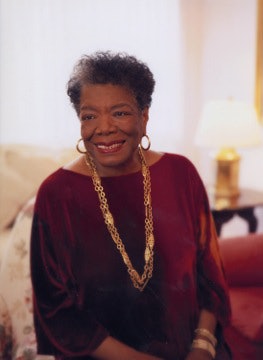
INDIANAPOLIS — With grace and elegance, Dr. Maya Angelou did it all.
She was the last of a generation of artists whose life work was deeply connected to a commitment toward social justice. A gifted author best known for her poetry, she was also a pioneering actress, singer and dancer, all the while remaining a staunch advocate for civil rights.
But for the hundreds of young people who passed through her class at Wake Forest University where she was the Reynolds Professor of American Studies for many years, Angelou was a mesmerizing teacher who pushed them to become agents for social change.
Yesterday, they, and indeed the world, paused to mourn the literary giant who died at the age of 86, having left behind a body of work that includes I Know Why the Caged Bird Sings and Phenomenal Woman.
In Indianapolis, where thousands gathered for the 27th annual National Conference on Race and Ethnicity in American Higher Education (NCORE), news of Angelou’s death was greeted with profound sadness.
At the opening session of NCORE, Dr. Marc Lamont Hill, a professor of education at Columbia University’s Teachers College, paid homage to Angelou during his keynote address. “Yet another elder has become an ancestor,” he told the packed audience that filled the ballroom. Recounting the recent deaths of Dr. Vincent Harding and others, he added: “We’ve lost so many and so much.”














